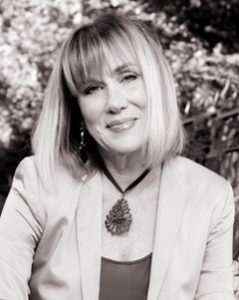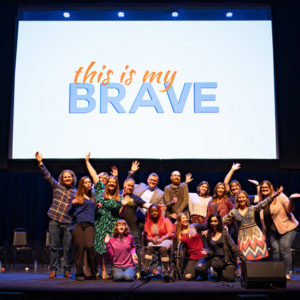Giving Yourself Permission to Ask for Help by Dr. Margaret Rutherford
How good are you at asking for help?
Many people hate it, as if it makes you somehow less than to not look as if you’re “in the know.” Others don’t have as much reticence, much more freely admitting that you don’t have something all figured out.
When it comes to entering therapy, revealing this kind of vulnerability is an obvious prerequisite. And it stops so many people from going. “I don’t know how I could trust someone. Plus I can solve my own problems.” Or, “I wouldn’t want anyone to know.”
I’m a storyteller at heart and thought that sharing this next story might help you look at your own reasoning with a bit more compassion. After all, I’m a therapist who supports self-revelation and the growth that comes from it. But there are times when any of us can listen to the voice that chides, “You know, you should be able to do this by yourself.”
I recently visited a residential psychiatric center with a group of therapists. The center wanted us to experience their program firsthand and participate in the activities and classes available to its patients. It was fascinating.
The first night, after dinner, we were led in front of two huge closed doors. We were told we were going to be led into a maze with only one exit. We were assured there was an exit, and it was our job to find it. Then we were blindfolded and led by someone else into the room. My hand was put on what felt like a rope. There were some rules: You weren’t allowed to release a rope or go underneath it. You followed the rope until you discovered the exit. We were asked to be totally silent. If you thought you’d found the exit, or if you needed something, you could raise your other hand and wait for someone to come to you.
Soft music was playing in the background. We clumsily bumped into one another, nervous laughter filtering through the room. I traveled around for what felt like forever, trying to envision a pattern in my mind of where I was going and where I’d been. I could find no exit. I held up my hand, thinking I’d brilliantly figured it out.
“Is the exit breaking the rules and letting go?” I asked.
“No.”
I tried again, becoming restless and irritated with myself, as a growing crowd that had found said exit were quietly talking with one another.
I raised my hand again. “Is the answer that there’s no exit (wondering if questioning the reality they’d described was the answer…)?”
“No, Margaret, keep traveling.”
I was getting more and more agitated and emotional. This was embarrassing. And suddenly I stopped. I knew. I raised my hand for the last time.
I whispered with tears in my eyes, “I need to ask for help.”
That was the exit: Admitting that I needed help. It was so simple yet had been very difficult to allow myself to see. I’d been so purposeful, so fixed on my own ego getting affirmed, my own mind solving the problem, that the simple answer of asking others for what I needed was ignored. It was quite the lesson, not only for me as a therapist, but for me as a person.
We all need help. You’re not here to live life on your own.
If it’s hard for you to consider opening up, to reveal psychological or emotional difficulty, the key is to identify and rationally question whatever strict rules you may have learned or picked up about revealing vulnerability from your parents or your culture. And that can be more difficult than you imagine. Yet, you don’t have to keep following those rules. They can belong to the past.
So many of you who’ve participated in This Is My Brave already know the immense relief and freedom you can experience from telling your story You’ve played an active role in confronting the prejudice against mental illness and its treatment.
But if you’re still hiding – if you’ve attended a TIMB performance and thought, “I could never do what they’re doing” – please reconsider.
Admitting vulnerability might be the most powerful thing you’ve ever done.
Recommended Links:
Seven Practical Suggestions on How to Find A Therapist
SelfWork Podcast: Why Risk Vulnerability?

About the Author
Dr. Margaret Rutherford, a clinical psychologist, has practiced for twenty-five years in Fayetteville, Arkansas., Her work can be found at https://DrMargaretRutherford.com, as well as HuffPost, Psych Central, The Mighty, the Gottman Blog and others. She hosts a weekly podcast, SelfWork with Dr. Margaret Rutherford. Her new book, Perfectly Hidden Depression, will be published by New Harbinger in 2019.

